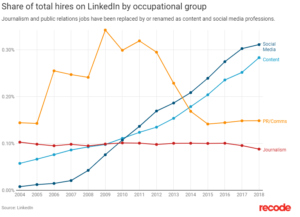News Story of the Day: This is definitely something that the war on cash advocates will use to justify abolishing cash.
According to the Federal Reserve and Deutsche Bank, the number of C-notes ($100 banknotes) in circulation has doubled over the last decade, and they now exceed $1 bills.
Economists contend that it is because people want to hoard cash to protect themselves from the financial crisis. But the opportunists believe it it something more sinister: people want to partake in crime!
We could have gotten away with it too if it weren’t for those lousy interventionists!
Nicholas Colas, co-founder of DataTrek Research, told CNBC that eliminating these Benjamin Franklins will not happen because the government makes a niche chunk of change selling these notes offshore:
“The Federal Reserve and Treasury make 99 dollars for every $100 dollar bill they print and sell offshore,” Colas told CNBC. “There’s a natural desire to keep printing these things — the U.S. government makes a lot of money selling them.”
Chart of the Day: Ostensibly, the definition of “journalist” is gradually changing. Before you say “activist” or “propagandist,” Recode put together this chart that shows how the role of a journalist has been renamed content or social media specialist.
Illustration of the Day: As the days go by, it is becoming increasingly clear that the left is eating its own.

Quote of the Day: Thomas Sowell will always remain a legendary thinker, and it is for comments like these in The Thomas Sowell Reader:
Of all the tragic facts about the history of slavery, the most astonishing to an American today is that, although slavery was a worldwide institution for thousands of years, nowhere in the world was slavery a controversial issue prior to the 18th century. People of every race and color were enslaved – and enslaved others. White people were still being bought and sold as slaves in the Ottoman Empire, decades after American blacks were freed.
Everyone hated the idea of being a slave but few had any qualms about enslaving others. Slavery was just not an issue, not even among intellectuals, much less among political leaders, until the 18th century – and then it was an issue only in Western civilization. Among those who turned against slavery in the 18th century were George Washington, Thomas Jefferson, Patrick Henry and other American leaders. You could research all of the 18th century Africa or Asia or the Middle East without finding any comparable rejection of slavery there. But who is singled out for scathing criticism today? American leaders of the 18th century.
Deciding that slavery was wrong was much easier than deciding what to do with millions of people from another continent, of another race, and without any historical preparation for living as free citizens in a society like that of the United States, where they were 20 percent of the population.
It is clear from the private correspondence of Washington, Jefferson, and many others that their moral rejection of slavery was unambiguous, but the practical question of what to do now had them baffled. That would remain so for more than half a century.
In 1862, a ship carrying slaves from Africa to Cuba, in violation of a ban on the international slave trade, was captured on the high seas by the U.S. Navy. The crew were imprisoned and the captain was hanged in the United States – despite the fact that slavery itself was still legal at the time in Africa, Cuba, and in the United States. What does this tell us? That enslaving people was considered an abomination. But what to do with millions of people who were already enslaved was not equally clear.
That question was finally answered by a war in which one life was lost [620,000 Civil War casualties] for every six people freed [3.9 million]. Maybe that was the only answer. But don’t pretend today that it was an easy answer – or that those who grappled with the dilemma in the 18th century were some special villains when most leaders and most people around the world saw nothing wrong with slavery.
Tweet of the Day: Representative Thomas Massie (R-KY) is quickly becoming one of the most important members of the Republican Party and Congress. It is for truth bombs like this one that should propel him to the top of the party:

Video of the Day: Tulsi Gabbard recently made an appearance on Tucker Carlson, which will inevitably lead to her opponents to accuse her of being a white supremacist. It was a good interview and hopefully open the minds of Fox News viewers. Let’s hope she appears on the Ron Paul Liberty Report soon!

Doesn’t look like Trump plans to restore the Bill of Rights.